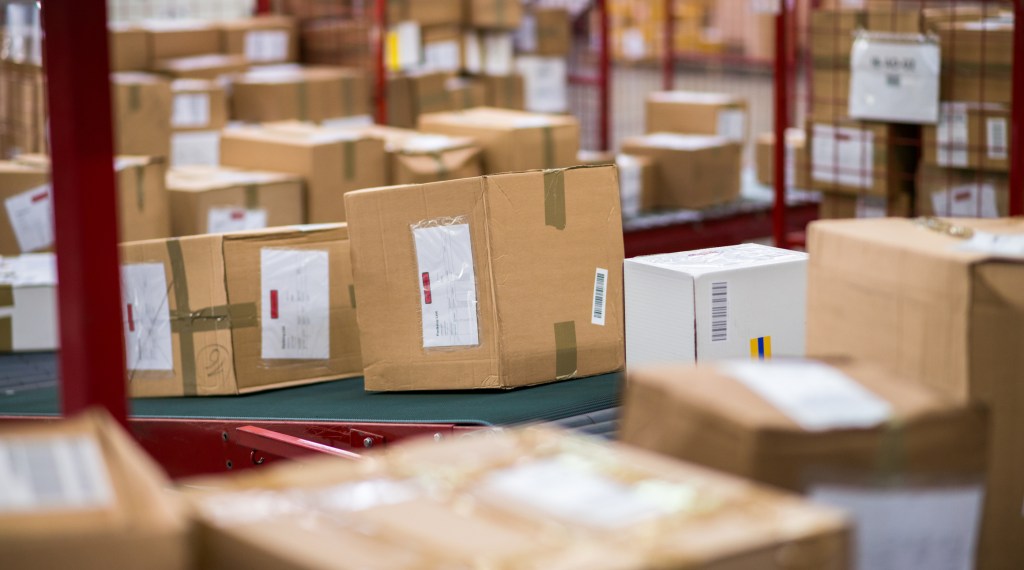The COVID-19 pandemic boosted U.S. online shopping by $183 billion, according to a new report by Adobe’s e-commerce division, released this morning. This figure represents the increase in online shopping during the months of March 2020, when the pandemic began in the U.S, through February 2021. During this time, U.S. consumers spent a total of $844 billion online. Meanwhile, $813 billion was spent during the calendar year 2020 alone, up 42% over 2019. To put this $183 billion in perspective, Adobe notes it’s nearly the size of the last holiday shopping season, when $188.2 billion was spent online during the months of November and December 2020. The firm expects this growth to continue in the years ahead, reaching $1 trillion by 2022.
The pandemic has served as an accelerant to many industries, pushing them years ahead of where their natural growth would have otherwise taken them.
E-commerce benefitted from this trend as well, as consumers faced stay-at-home orders, nonessential retailers closed their doors, and in-person shopping was replaced with online commerce for many consumers. Adobe says the pandemic itself produced a “rare step change in online spending, equivalent to a 20% boost,” and noted the impacts will continue even as the pandemic comes to an end in the months to come.
The company’s analysts, for example, noted that the first two months of 2021 (Jan.-Feb. 2021), have already seen consumer spending of $121 billion in the U.S, or a 34% year-over-year increase.
Also during this time, the buy-now-pay-later method for online shopping has jumped up by 215% year over year, with orders that are 18% larger — another factor in the growing sales driven by these changes.
Adobe predicts that current growth rates will continue, leading to 2021 calendar year sales of somewhere between $850 billion and $930 billion. It then expects 2022 to deliver the first trillion-dollar year for U.S. e-commerce.
Beyond the e-commerce sales increases, the pandemic may have also led to other long-lasting changes in terms of how people shop and what they’re buying.
Adobe said that both in-store and curbside pickup services had grown in adoption by 67% year over year, as of Feb. 2021. Consumers seem very receptive to this hybrid model of shopping, with a recent Adobe survey finding that 30% of U.S. consumers actually prefer pickup over standard delivery, for instance.
The shift to regular online shopping may have some later impacts on typical “sales holidays” that had, in the past, drawn larger increases in shopper activity. Memorial Day 2020 commerce grew 20% less than other days that week, and resulted in $32 million less revenue, Adobe noted. Labor Day and Presidents Day saw similar trends. And notably, the five days between Thanksgiving and Cyber Monday 2020 also contributed 9% less to revenue share during the holiday season, equivalent to $600 million.
There were some indications that retailers haven’t quite adapted to the surge of new online shoppers, however. “Out of stock” messages were common, peaking in July 2020, which saw 3x the number of stockouts compared with a pre-pandemic period. And in Jan. 2021, out of stock messages were elevated at 4x pre-pandemic levels. This was common particularly among groceries, pet products and medical supplies, Adobe said.
Online grocery has also benefited from the change in consumer behavior and doesn’t show any signs of slowing. In Feb. 2021, the category was up by 230% compared with Jan. 2020, pre-pandemic.
Unlike with consumer surveys, Adobe’s data is derived from trends seen directly in Adobe Analytics, which covers over 1 trillion visits to U.S. retail sites and over 100 million SKUs, giving it a more comprehensive, real-time look into the U.S. e-commerce industry and consumer spending.
Global-e files to go public as e-commerce startups enjoy a renaissance
Early Stage is the premier “how-to” event for startup entrepreneurs and investors. You’ll hear firsthand how some of the most successful founders and VCs build their businesses, raise money and manage their portfolios. We’ll cover every aspect of company building: Fundraising, recruiting, sales, product-market fit, PR, marketing and brand building. Each session also has audience participation built-in — there’s ample time included for audience questions and discussion. Use code “TCARTICLE at checkout to get 20% off tickets right here.































Comment